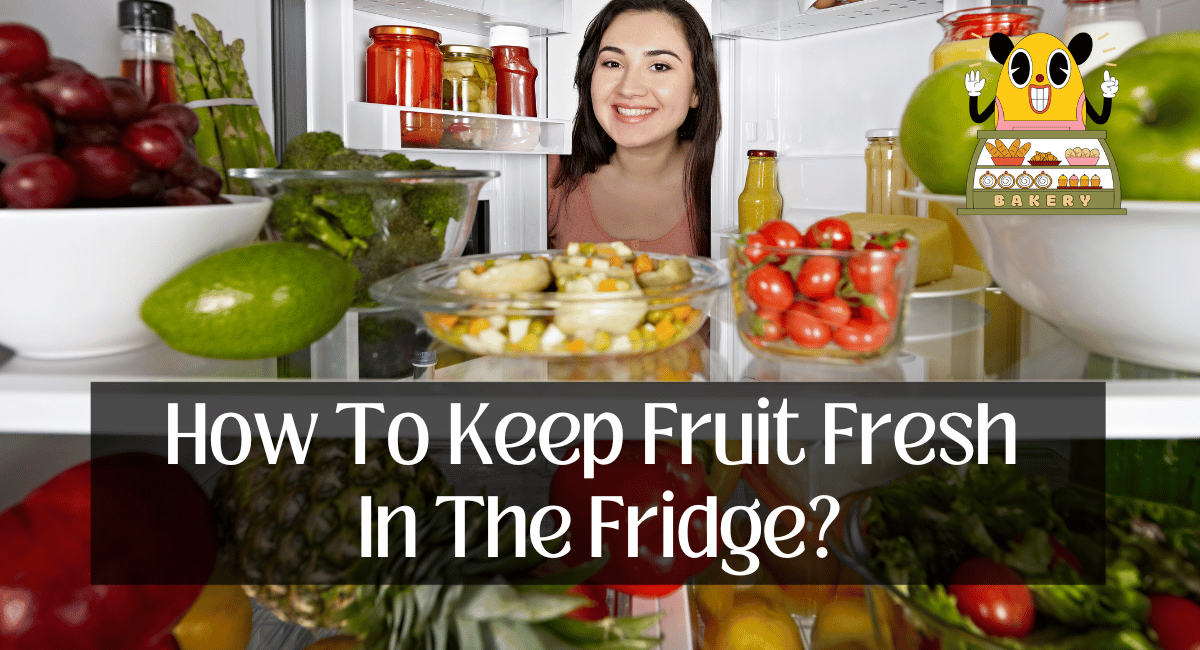Maintaining the flavor and nutritional value of fruit necessitates storing it in the refrigerator. Proper storage techniques can lengthen the shelf life of your favorite fruits, reducing waste and ensuring that you appreciate them at their peak quality.
You can create an environment that delays ripening and prevents spoilage by controlling the temperature, using airtight containers, and understanding the specific needs of each fruit.
In this article, we will examine simple yet effective methods for extending the freshness of a variety of fruits, from delicate berries to robust citrus, in the refrigerator.
How To Keep Fruit Fresh In The Fridge?
Maintain a refrigerator temperature between 32 and 40 degrees Fahrenheit (0 and 4 degrees Celsius), use hermetic containers, and separate fruits and vegetables. Store berries with paper towels, citrus in receptacles, and apples by themselves. Follow specific guidelines for each type of fruit to reduce decay and prolong freshness.
Temperature: Adjust the temperature in your refrigerator to between 0 and 4 degrees Celsius (32 to 40 degrees Fahrenheit), which will slow down the ripening process and prevent the formation of bacteria.
Storage: Store fruits in their original packaging or in airtight containers to prevent cross-contamination with other foods and loss of moisture. Storage should be done at room temperature.
Separation: Fruits and vegetables should be kept in separate areas at all times. Fruits give off ethylene gas, which has been shown to hasten the decaying process in plants. If you have a crisper drawer that has changeable humidity levels, store your fruits in the setting with the highest humidity and store your veggies in the one with the lowest humidity.
Preparation: Before putting fruits away for storage, make sure you wash and dry them. Mold can start to grow when there is too much moisture.
Berries: Strawberries, raspberries and blueberries and other berries that are easily bruised, should be stored in shallow containers that are lined with paper towels to absorb any extra moisture. Keep them unwashed until just before you’re ready to consume them.
Citrus Fruits: Fruits Derived from Citrus Trees Fruits derived from citrus trees can be stored at room temperature for a few days or in the crisper drawer of the refrigerator. If you want to keep the sliced citrus fruits as fresh as possible, you should store them in a container that is airtight.
Apples: Apples Should be kept in the crisper drawer of the refrigerator, away from other fruits, because apples give off more ethylene gas than other fruits. A plastic bag with perforations is another option for storing them safely.
Bananas: Bananas should be stored on the counter until they ripen, at which point they should be moved to the refrigerator to extend their period of freshness. The fruit itself will not spoil despite the possible darkening of the skin.
Stone Fruits: Peaches, plums, and nectarines are examples of stone fruits. To ensure that these fruits ripen properly, place them in a paper bag and place it on the counter. When they are ready, you can put them in the refrigerator.
Melons: Melons that are still in their whole form can be kept at room temperature until they are sliced. After cutting it, place the unused portion in the refrigerator after first wrapping it in plastic wrap.
Grapes: Grapes should be kept in the crisper drawer at room temperature in their original packaging or in a plastic bag.
Pineapples: Pineapples should be kept at room temperature until they are ready to be eaten. After it has been chopped, place any remaining pineapple in a container that can seal tightly and put it in the refrigerator.
Berries: You can keep berries for a longer period of time if you freeze them. After washing and thoroughly drying them, arrange them on a baking sheet in a single layer and set them in the freezer. After it has been frozen, transfer it to a freezer-safe container or bag.
Keep in mind that different fruits have different storage needs due to the different levels of sensitivity and ethylene production they exhibit. Always evaluate the individual requirements of each fruit to achieve the freshest possible outcome.
Thanks for reading. I hope you find it helpful.

